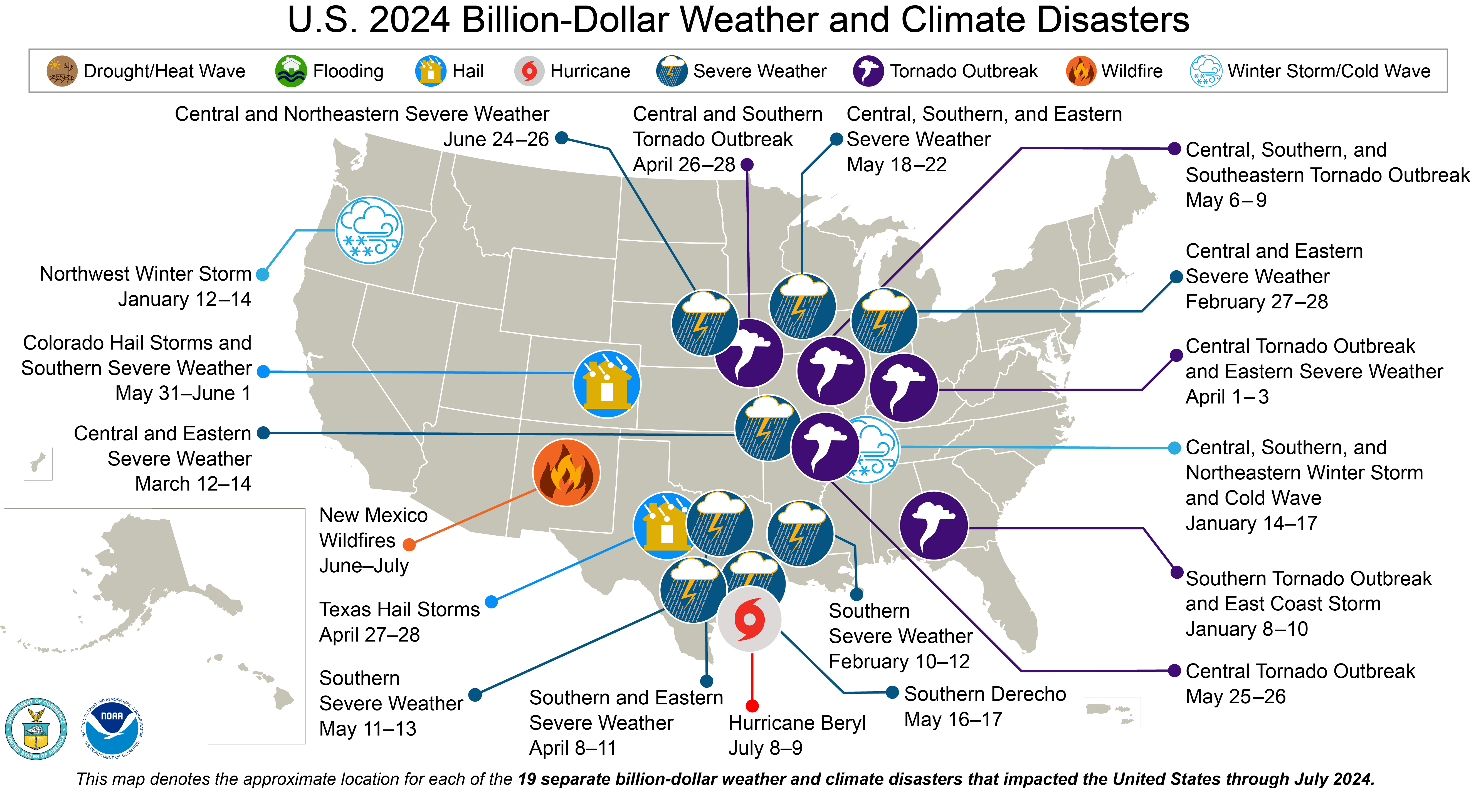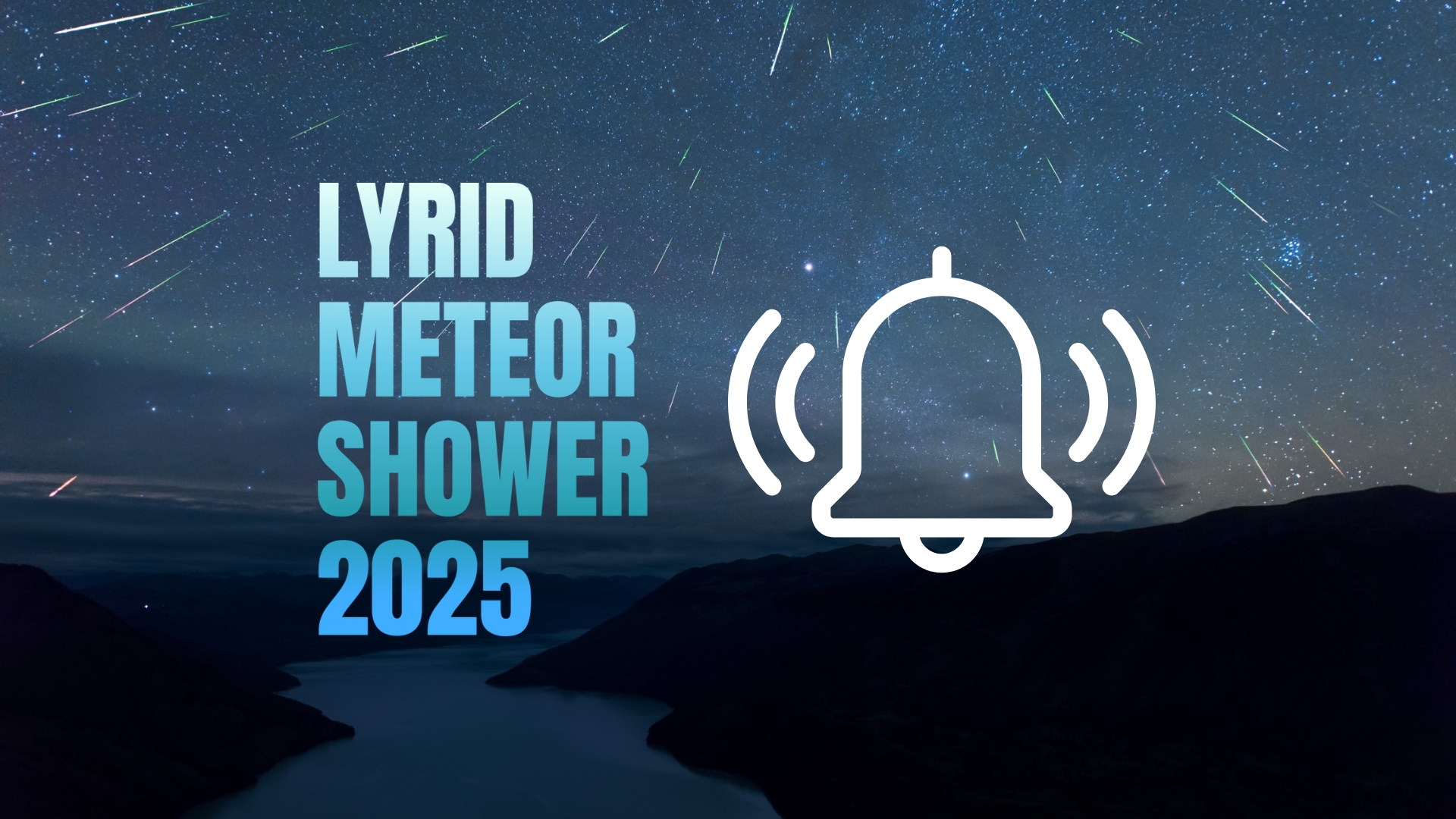July 2024 sets new records for global heat and climate disasters
Climate change continues to contribute to weather extremes.

Mother Nature's record hits continue to play across the United States and even globally with July 2024 setting new extremes for warmth and climate disasters.
It's no surprise as we've just seen back-to-back record-high temperatures across Earth, stretching back to June 2023 and coinciding with consecutive global sea-surface temperature highs.
According to a global extreme heat analysis from Climate Central, human-driven climate change continues to be the culprit for the powerful heat waves thanks to activities like burning coal and deforestation. Across the world, between June 16 and June 24, more than 60% of the population was impacted by the resulting extreme heat.
Earth's average temperature for the month of July was the highest in National Oceanic and Atmospheric Administration (NOAA)'s 175-year book, inching up 2.18 degrees Fahrenheit (1.21 degrees Celsius) from the 20th-century average of 60.4 degrees Fahrenheit (15.8 degrees Celsius). In the U.S., July's average temperature came in at the 11th warmest in 130 years at 75.7 degrees Fahrenheit (24.3 degrees Celsius). Nineteen states experienced their top 10 warmest month on record in July as well, with California and New Hampshire at the hottest.
Related: Scientists are mapping Earth's rivers from space before climate change devastates our planet
Two U.S. cities also set heat records in July. Las Vegas, Nevada, hit its hottest temperature of all time at 120 degrees Fahrenheit (49 degrees Celsius) on July 7 and in Washington, D.C., July 17 marked the fourth straight day of temperatures greater than 100 degrees Fahrenheit (38 degrees Celsius), tying the record for most consecutive days with such immense heat.
As temperatures continue to increase this way, it also sets the stage for storm systems to become much stronger and more likely. In fact, the warmer it is, the more frequently water evaporation takes place which fuels tropical systems that are already forming and intensifying in oceans with above average sea-surface temperatures. In addition, more heat leads to better drought conditions, which can create wildfires.
Get the Space.com Newsletter
Breaking space news, the latest updates on rocket launches, skywatching events and more!

July's extreme weather highlights included heat waves, a major hurricane and fast-moving wildfires across the western U.S — each also driven by human-induced climate change. Hurricane Beryl made history on July 1 as the earliest Category 5 storm on the Saffir-Simpson scale and only the second on record in the Atlantic Ocean during any month of July. In California, more than 13,000 people were forced to evacuate near Oroville between July 2 and July 3 due to a wildfire, named the Thompson Fire, and, on July 24, the Park Fire ignited and became the fourth-biggest in state history at more than 400,956 acres.

The number of billion-dollar weather and climate events for the year also climbed to 19, putting 2024 in second place to 2023 for the most to occur from January through the end of July. This year alone, there have been at least 149 lives lost from these events with damage totaling more than $49.6 billion. NOAA records began back in 1980, and since then, there have been 395 different climate and weather disasters with the cost totaling $2.770 trillion.
Join our Space Forums to keep talking space on the latest missions, night sky and more! And if you have a news tip, correction or comment, let us know at: community@space.com.

Meredith is a regional Murrow award-winning Certified Broadcast Meteorologist and science/space correspondent. She most recently was a Freelance Meteorologist for NY 1 in New York City & the 19 First Alert Weather Team in Cleveland. A self-described "Rocket Girl," Meredith's personal and professional work has drawn recognition over the last decade, including the inaugural Valparaiso University Alumni Association First Decade Achievement Award, two special reports in News 12's Climate Special "Saving Our Shores" that won a Regional Edward R. Murrow Award, multiple Fair Media Council Folio & Press Club of Long Island awards for meteorology & reporting, and a Long Island Business News & NYC TV Week "40 Under 40" Award.









